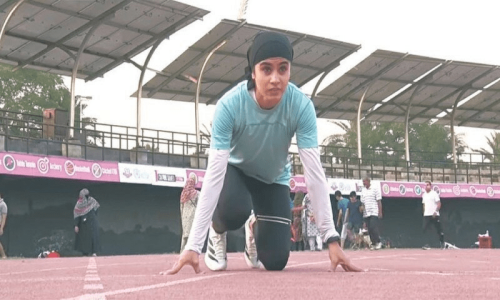SINDH Chief Minister Syed Qaim Ali Shah had said earlier last month that the imported Ukrainian wheat had adversely affected the disposal of local stocks in the market and forced the provincial government to reduce its procurement target.
One would not disagree with the CM over the impact of imported wheat, which had forced the provincial government to dispose of grains in its warehouses.
However, there has been a big failure in the distribution of jute bags to small farmers, which tends to clog sales. Small farmers always suffer from a lack of bags and from market manipulations by big landlords favoured by the provincial procurement department.
And due to cumbersome bank loan procedures, they also have to depend on conventional money lenders who provide them credit for investing in the crops and purchase their produce at lower-than-market prices.
Since the provincial government was hard pressed to deplete last year’s stock given its limited storage facilities, it had to reduce the procurement target to 0.9m tonnes from 1.3m tonnes.
As things stand today, the new crop from lower Sindh is reported to have been sold, while the harvest in upper Sindh is in final stages.
The mismanagement in the distribution of jute bags has been unprecedented this year. Some farmers have moved the Sindh High Court individually or jointly, seeking its intervention to direct the food department to purchase their crop at the support price of Rs1,300 per 40kg by providing them jute bags. Currently, wheat is being sold for Rs1,000 per bag.
According to a chakki owner in Hyderabad city’s market, the new crop is being sold for around Rs1,100 per 40kg bag.
Since 700,000 tonnes are available with the government and another 0.9m tonnes is to be procured at the current procurement price, the food department’s issued price of wheat would go up to around Rs3,500 after adding the cost of the jute bag and transportation. As a result, flour mills say they would prefer to buy the grain from the open market.
“We are currently purchasing wheat at Rs2,900 per 100kg [Rs1,150/40kg]. With some fluctuation, the price might increase to Rs3,000 or even Rs3,200, but it will still be less than the official price of the food department. So we will save money by buying grain from the market,” said chakki owner Mohammad Hanif Rajput.
Sindh is likely to have a good wheat crop of nearly 3.7m tonnes.
Published in Dawn, Economic & Business, May 4th, 2015
On a mobile phone? Get the Dawn Mobile App: Apple Store | Google Play














































Dear visitor, the comments section is undergoing an overhaul and will return soon.